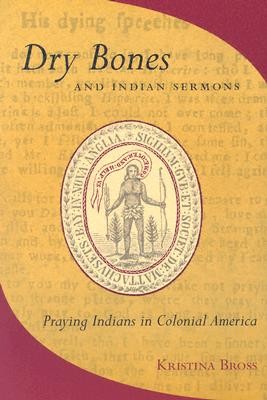
- We will send in 10–14 business days.
- Author: Kristina Bross
- Publisher: Cornell University Press
- ISBN-10: 0801489385
- ISBN-13: 9780801489389
- Format: 15.4 x 22.7 x 1.8 cm, minkšti viršeliai
- Language: English
- SAVE -10% with code: EXTRA
Reviews
Description
Native converts to Christianity, dubbed "praying Indians" by seventeenth-century English missionaries, have long been imagined as benign cultural intermediaries between English settlers and "savages." More recently, praying Indians have been dismissed as virtual inventions of the colonists: "good" Indians used to justify mistreatment of "bad" ones. In a new consideration of this religious encounter, Kristina Bross argues that colonists used depictions of praying Indians to create a vitally important role for themselves as messengers on an evangelical "errand into the wilderness" that promised divine significance not only for the colonists who had embarked on the errand, but also for their metropolitan sponsors in London.In Dry Bones and Indian Sermons, Bross traces the response to events such as the English civil wars and Restoration, New England's Antinomian Controversy, and "King Philip's" war. Whatever the figure's significance to English settlers, praying Indians such as Waban and Samuel Ponampam used their Christian identity to push for status and meaning in the colonial order. Through her focused attention to early evangelical literature and to that literature's historical and cultural contexts, Bross demonstrates how the people who inhabited, manipulated, and consumed the praying Indian identity found ways to use it for their own, disparate purposes.
EXTRA 10 % discount with code: EXTRA
The promotion ends in 21d.09:03:28
The discount code is valid when purchasing from 10 €. Discounts do not stack.
- Author: Kristina Bross
- Publisher: Cornell University Press
- ISBN-10: 0801489385
- ISBN-13: 9780801489389
- Format: 15.4 x 22.7 x 1.8 cm, minkšti viršeliai
- Language: English English
Native converts to Christianity, dubbed "praying Indians" by seventeenth-century English missionaries, have long been imagined as benign cultural intermediaries between English settlers and "savages." More recently, praying Indians have been dismissed as virtual inventions of the colonists: "good" Indians used to justify mistreatment of "bad" ones. In a new consideration of this religious encounter, Kristina Bross argues that colonists used depictions of praying Indians to create a vitally important role for themselves as messengers on an evangelical "errand into the wilderness" that promised divine significance not only for the colonists who had embarked on the errand, but also for their metropolitan sponsors in London.In Dry Bones and Indian Sermons, Bross traces the response to events such as the English civil wars and Restoration, New England's Antinomian Controversy, and "King Philip's" war. Whatever the figure's significance to English settlers, praying Indians such as Waban and Samuel Ponampam used their Christian identity to push for status and meaning in the colonial order. Through her focused attention to early evangelical literature and to that literature's historical and cultural contexts, Bross demonstrates how the people who inhabited, manipulated, and consumed the praying Indian identity found ways to use it for their own, disparate purposes.


Reviews